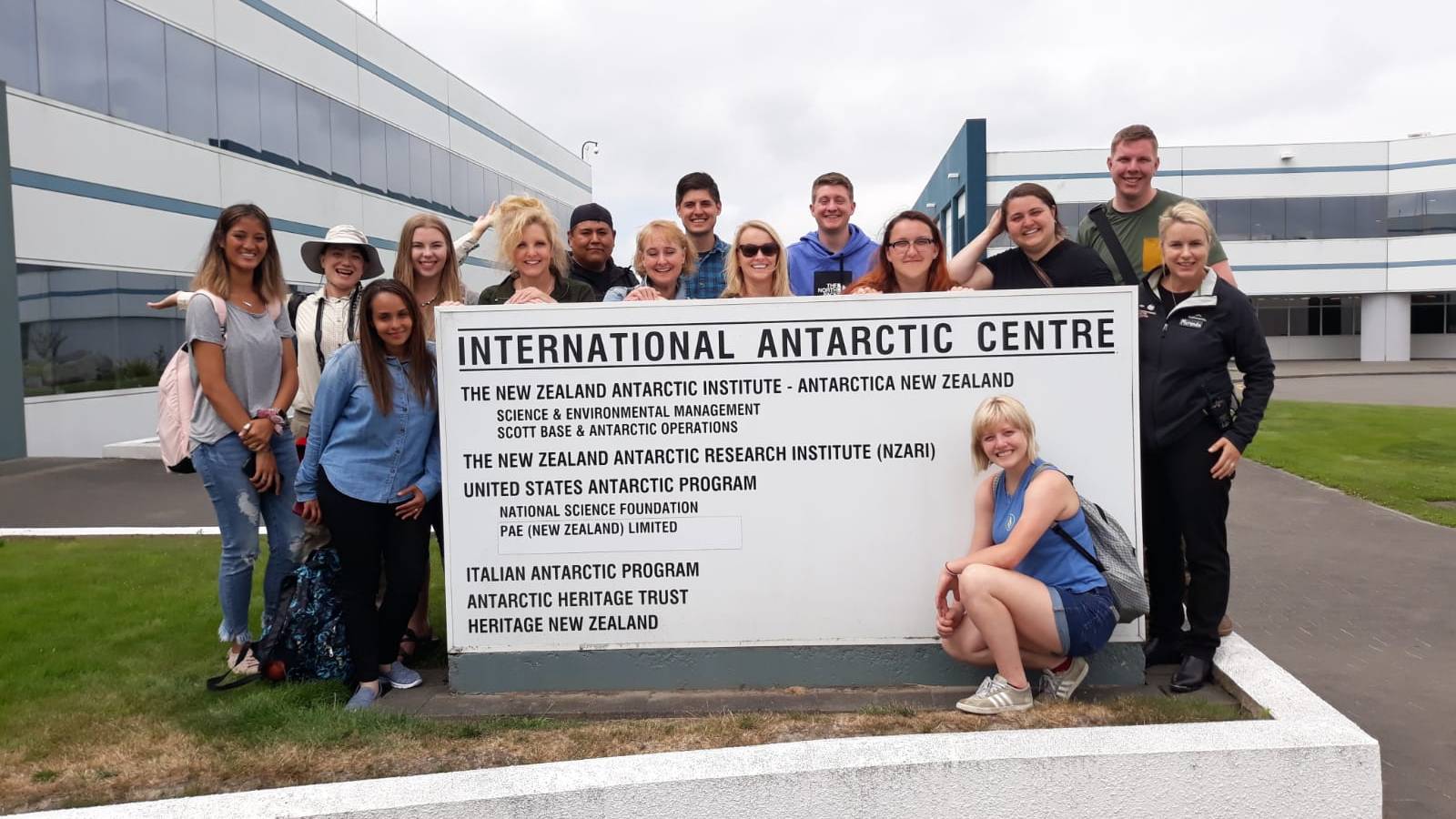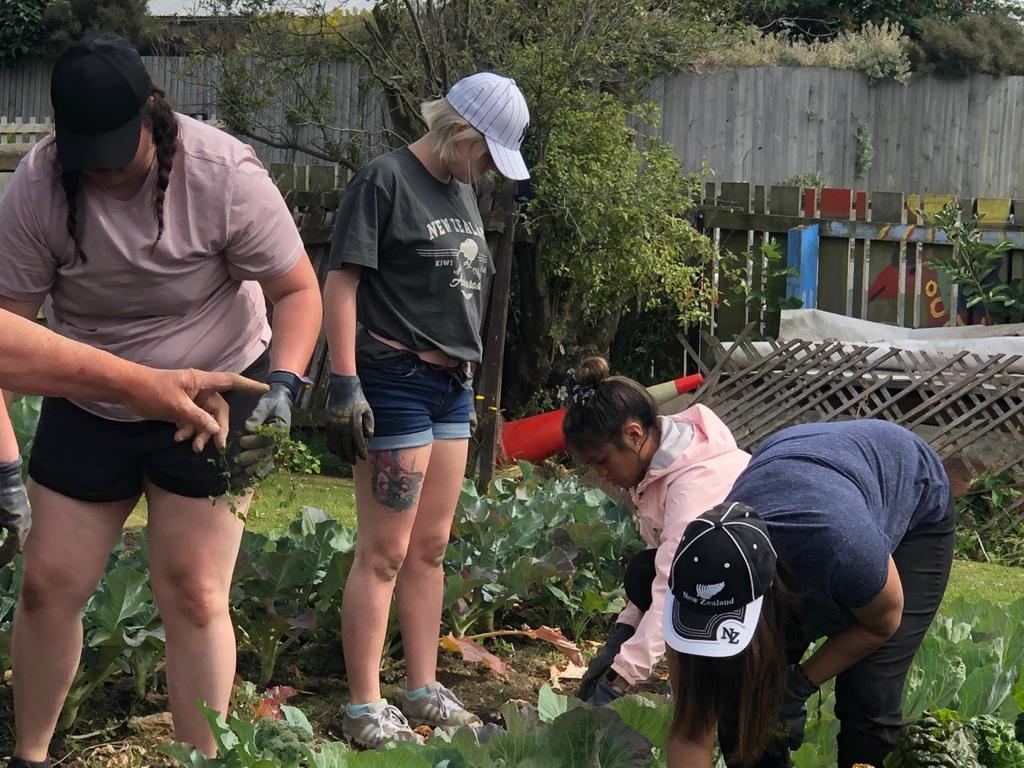
Twenty-one Utah Valley University students recently went down under to learn how to help their neighbors and communities survive and overcome a disaster. They spent two weeks in New Zealand studying how emergency service personnel and residents of Christchurch responded to two major earthquakes.
Eleven undergraduate and 10 graduate students came from diverse fields, including firefighting, emergency medical services, police, public and community health, nursing, and aviation. Most of the graduate students were interested in emergency management, said Jeff Maxfield, a UVU professor of emergency services, who was one of two faculty members on the trip.
“It was two weeks of non-stop learning and opportunity,” he said.
“We chose New Zealand because the geography is in some ways very close to that of Utah,” Maxfield said. “They have the Southern Alps there. They look a lot like the Wasatch Mountains. The city of Christchurch sits on an alluvial plain like our cities do. There is a lot of liquefaction potential.”
In September 2010 there was a magnitude 7.1 earthquake that did moderate damage, with a subsequent magnitude 6.3 quake four and a half months later that devastated Christchurch, Maxfield said.
“They lost about 70% of their downtown infrastructure, and nearly 10,000 residential homes were destroyed,” he said.
Nine years after the events, there is still work going on to rebuild the city and UVU students were able to help, performing service learning. In areas where a building was demolished, the residents worked to fill in the gaps. In one location, they created a dance floor, in another site they placed a piano for the public to play. Several areas had community gardens, including a place for painted rocks.
“A police sergeant did some community policing and got citizens involved,” Maxfield said. “They were able to virtually get rid of all the graffiti and crime in the area. We weeded and helped them prepare for some planting.”
The students spent the majority of their time in classrooms, learning from professionals in their fields.
In an area community center, they met with residents and learned how the earthquakes affected them on a personal basis. Those associations left a lasting impact.
“I wanted to observe how the people themselves handled that situation, how they recovered, how they were resilient,” said Kristie Dockstader, who is working toward a Master of Public Service degree. “I learned how resilient people can be. The relationships you form before an event can be critical. Planning for a disaster is crucial. If you have a good plan and good relationships in place, the way you handle a disaster will be much better.
“It was an amazing learning experience. It taught me lessons I will never forget. I will have them for a lifetime.”
She advocated building relationships between agencies, including fire departments, police departments, and health departments. In addition, she recommended people build relationships as individuals, with neighbors or in their communities.
“No matter who you are or what your religion, you need to have those relationships in place,” she said. “In New Zealand, they really care about each other. They were able to help each other because they already had those relationships.”
The projects done to fill in gaps where buildings had been demolished demonstrated that, she said.
“It was amazing to see the sense of community spirit and how they brought in those social aspects in their recovery from the earthquakes,” she said. “It was very uplifting to see what people can do for each other and how they can help each other in times of crisis.
The students’ discoveries were more impactful than if they just read about them in a book, Maxfield said.
“It has changed people’s lives,” he said about students who had gone in the two prior years. “It has actually changed people’s majors. This is truly engaged learning.”
Not only will they take that learning into their careers, this year’s students will have a chance to share their new perspectives at a conference in March, with other students and the emergency services community, he said.
The impact will also affect their personal lives.
“I realized I need to do a better job being a prepared person, like with my 72-hour kit,” Dockstader said. “I also need to even further reach out to people and get more involved in my own community. We are all better off regardless of whether or not we have a disaster.”
This story originally appeared in the Daily Herald.
“I learned how resilient people can be. The relationships you form before an event can be critical."
— UVU student Kristie Dockstader

UVU students engage in service learning in Christchurch, New Zealand, by working on a community garden planted in the aftermath of the major earthquakes. The garden was planted as a way of pulling the community together and provide healing to the citizens after the earthquakes of 2010 and 2011.